Managing projects of every size and level of complexity is crucial to business success, regardless of which industry you are talking about. This process is never easy, and when it comes to software development project management, this might get harder due to the dynamic nature of the IT industry. To deal with the constant pressure for executing projects successfully, several tools, methodologies, and techniques are available.
In this post, we’re describing common management issues and their solutions, the importance of project management in SDLC, and the best project management tools and methodologies that can drive your projects to success.
Most Common Project Management Issues for Software Development and their Solutions
While managing a software project, every company faces some problems, complex or easy to handle, throughout the daily operations. Let’s take a look at the most common issues and how to deal with them when they arise.
1 – Unclear Goals
Goals without objectives push the project in danger. This is a major software development project management issue that makes the business suffer.
Solution
Before the project starts, it’s important to understand the client’s needs and requirements. This can be done through meetings (verbal/physical), preparing a document, and discussing it with your client.
2 – Miscommunication
It is no surprise that poor communication can have a severe effect on the successful project delivery. If a project manager doesn’t provide clear communication while giving instructions or seeking information, the business fails.
Solution
Determine a proper communication flow to keep team members informed by using collaboration software. With regular reviews and meetings, miscommunication can be minimized and it ensures everybody is on the same page.
3 – Unachievable Deadlines
Unrealistic or unachievable deadlines is one of the most common issues that agile teams face today. One of its causes is members getting imposed with a deadline that can’t be met. It is because maybe the client doesn’t have much understanding of the complexity of the task and how much time it can consume.
Solution
To prevent the project from going off the track, monitor your project from the very beginning. Also, keep customers in sync to see if change requests pose any threat to the timely completion of a project. Use a project management tool to manage your schedule and keep track of important dates.
5 Best Software Development Project Management Tools
Project management for software development is important for the teams to fulfill requirements and to manage different constraints. Using the right tool, a team can not only organize the project smoothly but it also makes communication easier. Here are the top five project management tools that can be used for this purpose:
JIRA
JIRA is a cross-platform issue tracking tool considered #1 by Agile teams. With JIRA, the software teams can use workflow mapping, along with various other Agile development functionalities to release the project smoothly. It integrates with many tools to allow the teams to handle their end to end project and product management.

Key Features:
- User stories creation
- Sprints planning
- Customizable workflows
- Issue management
- Distribution and prioritization of assignments across the team
- Scrum and Kanban boards for progress identification
- Project performance tracking
Pricing:
- $10/month for 10 or fewer users
- $75/month/15 users
- $300/month/50 users
Trello
One of the best free project management tools, Trello helps the team stay organized and enables them to work in a more collaborative manner. Today, it is one of the most extensively used project management tools in the industry with over 1.1 million active users. Based on Kanban card management system, the tool makes the workflow visualization easier for you.

Key Features:
- Kanban boards for workflow visualization
- Tags and categories for task organization
- Easy drag and drop of tasks for instant status indication
- Public and private access to boards
- Files and images sharing
- Quick collaboration
- Checklist management
Pricing:
- Free – suitable for startups
- Business Class – $9/user/month for business teams
- Enterprise – $20.3/user/month for big enterprises
Basecamp
Basecamp is among the most famous project management tools that boast modern social media-like interface and impressive team collaboration features. It has a simple and user-friendly interface for cooperation between teams and clients.
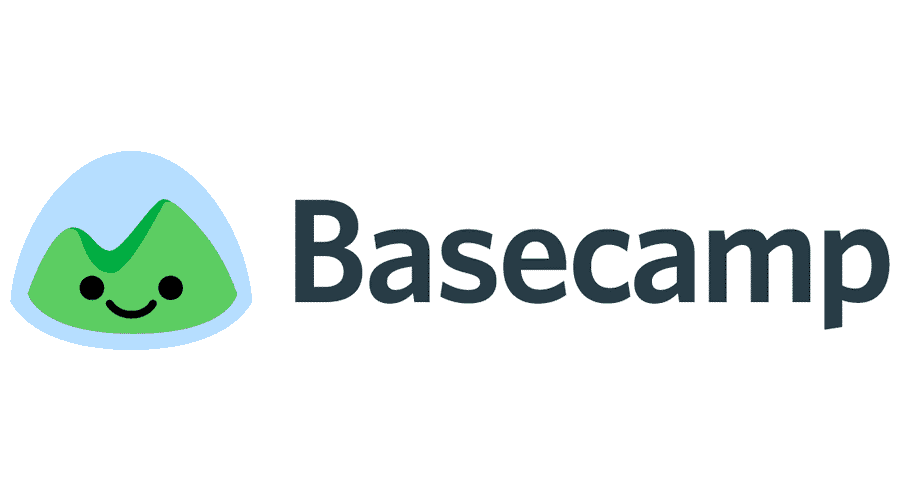
Key Features:
- Build up to-do lists with easy reordering
- Email and desktop notifications
- Separate dashboards for clients
- Performance tracking reports
- File storage and sharing
- RSS feed
Pricing:
- $99/month – unlimited users, unlimited projects, complete features, and 500 GB storage space
Wrike
Coming with a rich set of features, Wrike is one of the main choices of managers when it comes to project management. It has an intuitive three-pane interface with which you can organize your work in one place and streamline the collaboration process in the other place.
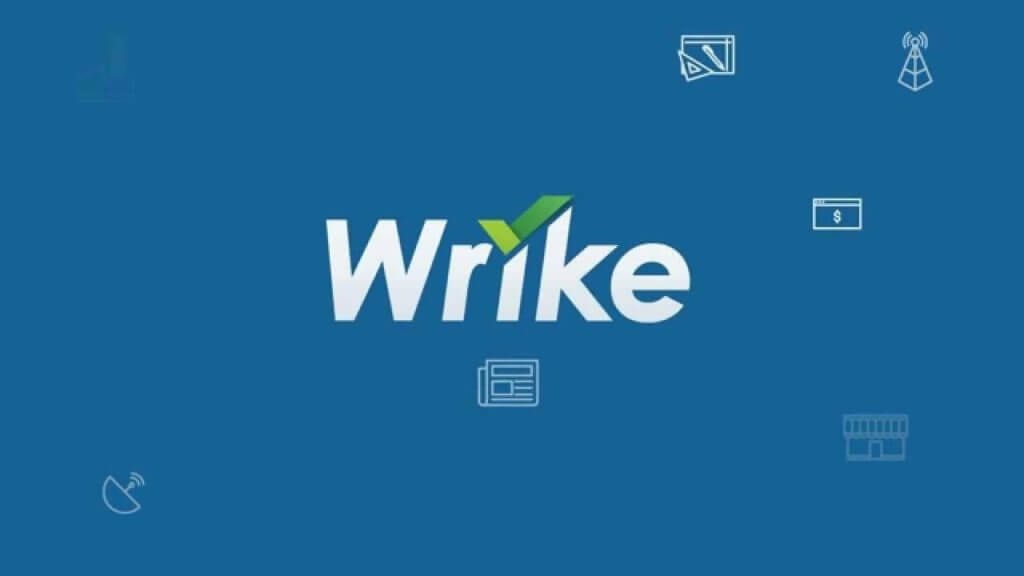
Key Features:
- Project planning
- Pre-built project templates
- Built-in time tracking tool
- Gantt charts for project management visualization
- Performance reporting and tracking
- Task tracking
- API integrations
Pricing:
- Free – accommodates 5 users at a time
- Professional – $9.8/month for 5-15 users to collaborate on a project
- Business – $24.8/month for 5-200 users
- Marketers – $34.6/month for 5-unlimited users
- Enterprise – Unlimited users
Asana
Asana is a powerful project management tool for small-scale software teams. It comes with a great set of features for smoothly implementing Agile methodologies. Using this tool, everyone in the team stays informed about each task and other team members’ progress.
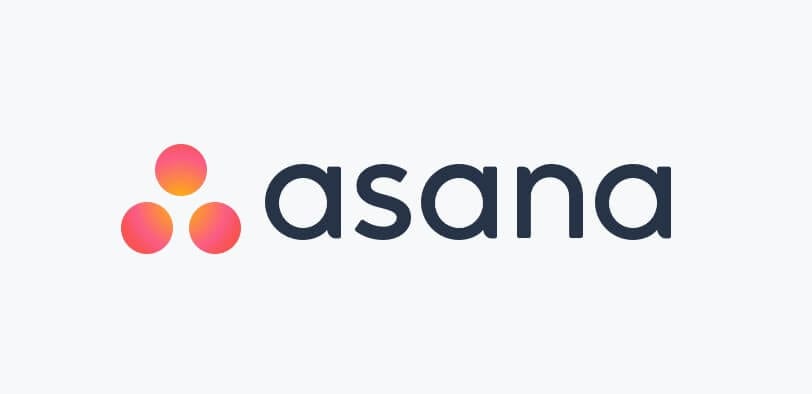
Key Features:
- Project timeline for managing deadlines
- Kanban boards for workflow visualization
- Priority settings for tasks
- Tasks and subtasks management
- Sprint planning and management
- Milestone tracking
- File attachment
- Backlog management
- Third-party integration
- Built-in templates
Pricing:
- Free – suitable for small teams
- Premium – $9.99/month with a wide array of features
- Enterprise – can be customized according to the team’s preferences
5 Best Software Development Project Management Methodologies
Choosing the right software development project management methodology is crucial for getting the job right. Keeping this importance in focus, we have described the five best methodologies and what kind of projects can be executed using them.
Agile
The most recognizable project management methodology, Agile is best suited for iterative and incremental projects. It focuses more on flexibility while developing a project and remains open to change rather than the fixed requirements. Today, companies use this methodology to enhance responsiveness to customer demands and changes in the software industry.

What kind of software development projects can be executed by Agile project management framework?
Projects that demand flexibility and have a high level of complexity or uncertainty. For example, a service or a product that hasn’t been built by the team.
Scrum
Scrum is a version of agile and uses many processes and principles from this methodology. This iterative model follows a specific set of roles, responsibilities, and meetings and works towards the fulfillment of its ultimate goal to improve teamwork and communication and enhance the speed of development.
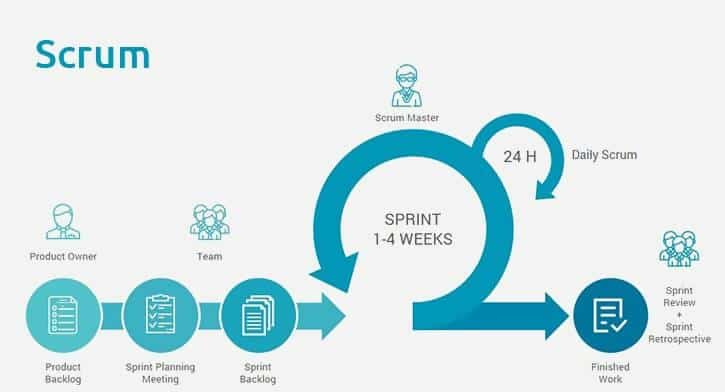
What kind of software development projects can be executed by Scrum project management framework?
This framework is best suited for projects having less than seven team members for a flexible approach to deliver a service.
Lean
Lean is a famous project management methodology that focuses on the theme of efficiency. The main purpose of this model is to streamline the business process, deliver value, and eliminate waste, suggesting you can do more with less. Consequently, it enhances the efficiency and productivity of the project and its team.
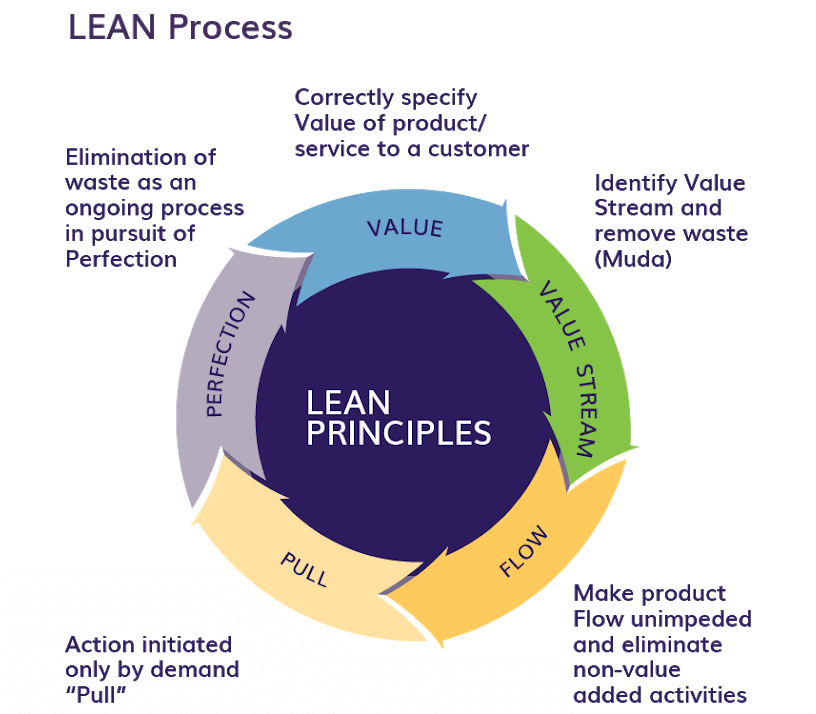
What kind of software development projects can be executed by Lean project management framework?
Lean is ideal for a business or a company that is not particularly looking for a process but is more interested in changing their ways of conducting the business.
Waterfall
The most traditional project management methodology, Waterfall is a linear sequential model in which the progress flows only in one direction. It follows a sequential process, indicating that the completion of one phase is important for proceeding to the next one. The rigidity of this approach and risks associated with it are some of its biggest downsides.
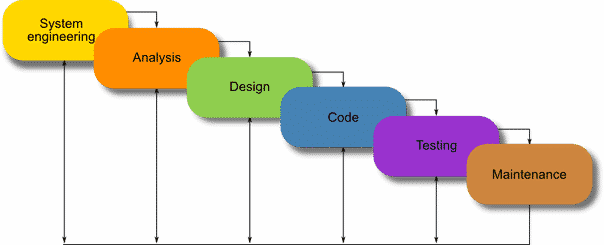
What kind of software development projects can be executed by Waterfall project management framework?
Bigger projects that demand to maintain the tight stages and deadlines or the projects that have been done many times over where there are fewer chances of uncertainty during the development phase.
Kanban
Kanban is a popular project management methodology that applies defined processes to increase the efficiency. It enables the team members to visualize the workflow, reduce work in progress, and measure lead time. In this way, the workflow can be improved and the time required to complete a task can be reduced.
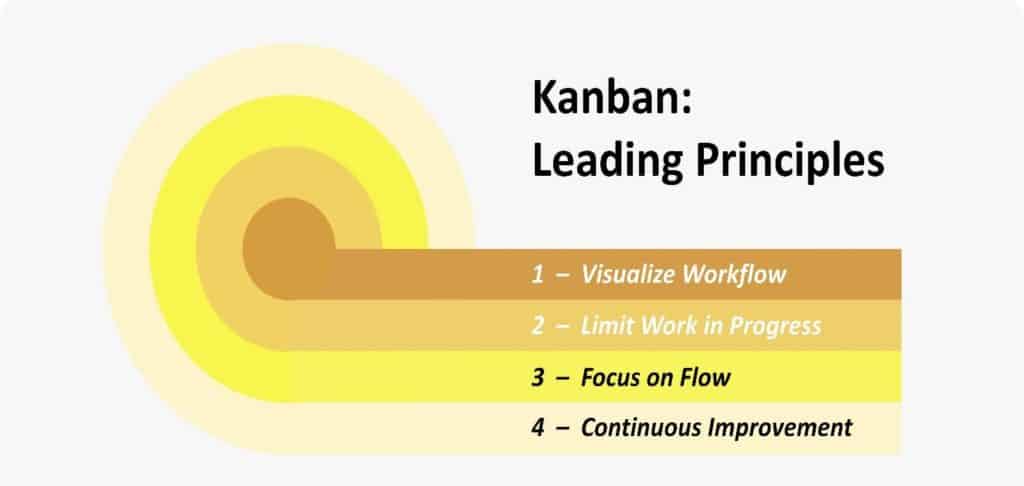
What kind of software development projects can be executed by Kanban project management framework?
Similar to Scrum, Kanban fits projects with smaller teams that require a flexible approach to deliver a product or service. It is also great for personal productivity purposes.
Importance of project management in software development life cycle
Many of the companies don’t find it necessary to have a project manager working on their projects due to budget or other concerns. This way, they underestimate the value of project management. Project management for software development complements the SDLC. It acts as a glue that binds project team with different stakeholders and provides consistency of success in terms of cost, time, and quality objectives. Furthermore, it provides a method of thought to ensure all requirements are addressed through a comprehensive process.
Conclusion
Software development project management isn’t exactly what it seems like – its much more than that. There are different factors that impact the successful project delivery and should be fixed before they turn into full-blown project issues. Thus, having the right tool and methodology in use, skills, teamwork, and understanding of the importance of project management in SDLC is crucial for your business to thrive.
Talk to our experts in enterprise applications development and find out more about the topic and how your business or project can start benefiting from it today!